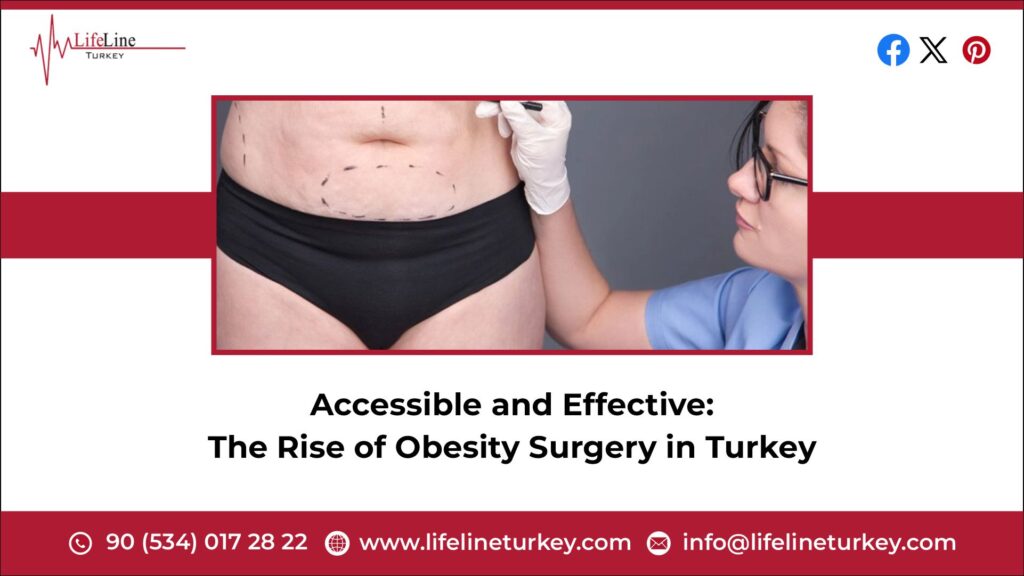Obesity is impacting millions of people globally. It has become a widespread health concern, leading to many problems, such as heart disease, diabetes, and joint problems. People attempt to cure this issue through diet and exercise, but these methods cannot overcome severe obesity. Weight loss surgery is an easy way out for those who have tried every diet, workout, and other method and have not seen any significant results.
This procedure provides a chance for lasting weight loss and can even help with serious health issues like type 2 diabetes, high blood pressure, and sleep apnea. However, misconceptions persist despite its potential life-changing effects. Some believe it is a “quick fix,” while others think it’s only for the severely ill or worry it’s too risky. These myths prevent people from considering a procedure that could change their lives.
This blog will start by exploring what happens during the procedure. Then, we’ll dive into the common myths that surround it. This way, till the end of this post, you’ll have a clear, accurate view of what it truly offers and requires.
What is Bariatric Surgery?
Bariatric Surgery, or Weight loss surgery, helps people manage and improve their health by losing weight. It is not a single procedure. It encompasses a variety of methods, each with its own set of risks and benefits.
- Gastric Bypass: In this procedure, surgeons make a small pouch at the top of the stomach and connect it to the small intestine. It limits how much food you can eat and reduces calorie and nutrient absorption, helping with weight loss.
- Sleeve Gastrectomy: A gastric sleeve removes a significant portion of the stomach. This procedure results in a smaller, sleeve-shaped stomach.This smaller stomach reduces hunger and limits the amount of food you can eat.
- Adjustable Gastric Banding: This procedure involves placing a band around the upper part of the stomach to create a small pouch. You can adjust the band to control the amount consumed, making people feel satisfied with less food.
Common Misconceptions
- People Who Are Overweight Go For The Obesity Surgery
The idea that anyone overweight can have this operation is a common misconception. In reality, mildly or even moderately fat individuals should not undergo weight loss surgery.
Instead, it is specifically designed for people with severe obesity who have a body mass index (BMI) of 40 or higher or a BMI of 35 or higher with severe and obesity-related health conditions like type 2 diabetes, hypertension, or sleep apnea. People who have tried several methods without success should use them.
- Weight Loss Surgery is a “Quick Fix”
Obesity surgery is a tool, not a miracle cure. After this procedure, you will lose weight quickly, but it will also limit your food intake. Surgical candidates have to meet regularly with the dietitian to make the necessary lifestyle changes that will cause weight loss to continue after the operation.
These changes include adhering to a healthy diet, exercising regularly, and following a strict post-operative care plan. The process takes four to six months. It requires dedication and commitment for positive results.
- It Prevents Women from Having a Healthy Pregnancy
Many women worry about their fertility, fearing that they will not be able to conceive or have a healthy pregnancy after undergoing bariatric surgery. It is a common belief that bariatric surgery may make pregnancy unsafe or impossible. Obesity increases the risk of conditions such as pre-eclampsia, gestational diabetes, blood clots, infections, and premature birth, which can complicate pregnancy and lead to infertility.
However, the fact remains that this procedure can enhance fertility and result in healthier pregnancies. We recommend waiting at least a year after the operation before attempting to conceive.
- Obesity Surgery is Cosmetic, and Insurance Won’t Cover It
A common myth is that obesity surgery is a cosmetic procedure that leads to weight loss. It leads many to believe that insurance companies won’t cover it. Obesity is associated with severe health conditions. The operation can significantly improve or even resolve these conditions.
Many insurance plans, especially those offered by employers or through government programs, cover this surgery when it meets specific criteria, including a certain BMI threshold and evidence of obesity-related health problems. You must check with your insurance provider and ensure you meet the qualifications.
- You’ll Regain the Weight After Surgery
People frequently ask, “What’s the point of getting surgery if you’re just going to regain weight?” While this concern is understandable, it does not provide a comprehensive picture. While it does not guarantee that a person will never regain weight, it increases the possibility of maintaining it.
Studies show that 85% of patients successfully keep off at least 50% of their excess mass in the years following surgery. However, this success still depends on lifestyle changes, including proper diet, exercise, and regular medical check-ups.
Myths Dispelled, Facts Confirmed!
Throughout this blog, we’ve uncovered some of the most common myths surrounding weight loss surgery and replaced them with facts that can help you make informed decisions about your health. Understanding the realities of bariatric procedures is essential for anyone considering this path. The facts are clear: bariatric procedures can result in significant weight loss, improve obesity-related health conditions such as diabetes and hypertension, and enhance overall quality of life. Research supports the success of these surgeries, and with appropriate post-surgery lifestyle changes and medical care, the results can be satisfying.
If you’re considering this life-altering decision, Lifeline Clinic offers a reputable and trusted option for Bariatric Surgery in Turkey. We are a team of highly qualified surgeons who provide an approach that ensures your weight loss journey is both safe and sustainable.
Contact Lifeline Turkey today to make your transformation successful!



